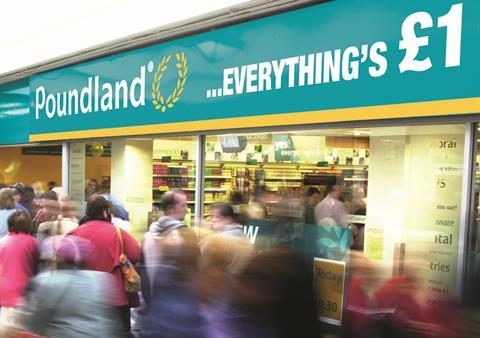The Steinhoff-owned value retailer will wind down its ecommerce site over the next few months, but still retain an online presence.
“The amount of customers wasn’t that great that were using it [the website] as a proposition and the amount of returning customers wasn’t as high as we would have liked to have seen”
Barry Williams, Poundland trading director
Poundland’s ecommerce service was launched in September 2015, offering around 2,000 items. Delivery cost £4 on orders under £50.
Speaking exclusively to Retail Week today, Poundland trading director Barry Williams said the decision was part of a “tidying up” process as the retailer aims to focus on its store portfolio.
“The amount of customers wasn’t that great that were using it [the website] as a proposition and the amount of returning customers wasn’t as high as we would have liked to have seen,” he said.
“We will keep the poundland.co.uk site to act as a window into the stores.”
Profits down

The retailer, which was acquired by Steinhoff in a £610m deal last September, has faced difficulties of late as profits in its last full-year tumbled 84% to £5.9m as it felt the strain of acquiring rival 99p Stores.
Williams, who joined Poundland in November after turning down Morrisons, said the ecommerce site was “nothing significant to the business” but dumping it felt like “the right decision”.
Analysts have long remained skeptical that value retailers can make the economics of ecommerce stack up.
Peel Hunt analyst John Stevenson told Retail Week last year: “To make it work you need to be doing large big-ticket stuff, but then you are moving away from the core offer.”
Openings and closures
Earlier today, Poundland launched its first full Pep & Co shop-in-shop at its store in Hanley, Stoke. The fashion retailer – selling value womenswear, menswear and kidswear – will be incorporated into 50 Poundland stores by spring.
Poundland is also in the process of closing several stores in towns in which the 99p Stores acquisition has meant the retailer has multiple stores that are not sustainable. However, Williams described a reported figure of 80 closures as “toppy”.
